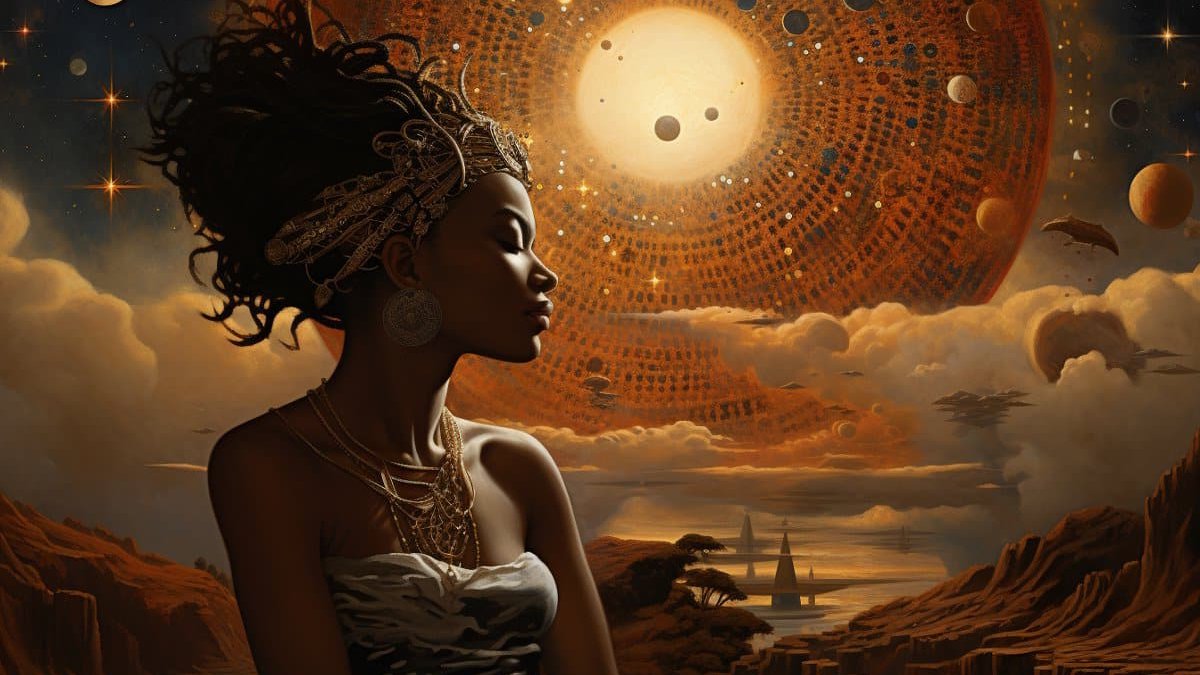Dreams are a universal part of being human, but what we think they mean changes a lot depending on where we live. This is what cultural dream comparisons are all about. It’s like studying how different groups of people around the world understand and value their dreams. For a deeper dive into understanding your subconscious mind, check out
the complete guide to dream interpretation.
Why does this matter? Because when we learn about how others see their dreams, we get a peek into their beliefs, values, and how they see the world. This offers windows into cross-cultural symbolism.
In this post, we’ll look at several major ways people interpret dreams, like those from native cultures, ancient peoples, and ideas from today.
Estimated reading time: 9 minutes

Key Takeaways
- Learning about cultural dream interpretations provides insights into different cultures’ beliefs and values.
- Dreams are universal, but their meanings are culturally constructed.
- Understanding cross-cultural symbolism enriches our understanding of dreams.
Table of contents
- Cultural Dream Comparisons: A Global Perspective on Dream Interpretation
- Key Takeaways
- The Universal Nature of Dreams: Modern Dream Perspectives
- Indigenous Dream Beliefs: Messages from the Spiritual Realm
- Ancient Civilizations: Dreams as Divine Messages
- Cross-Cultural Dream Symbolism: Same Symbol, Different Meanings
- Modern Scientific and Psychological Perspectives
- The Meeting of Traditional and Modern Perspectives:Cultural Dream Comparisons
- Practical Applications: Understanding Your Dreams in Cultural Context: Cultural Dream Comparisons
- Conclusion
The Universal Nature of Dreams: Modern Dream Perspectives
All humans have dreams, there is activity in our brains, Rapid Eye Movement while sleeping (REM Sleep). No matter where we come from, all humans share the same fundamental biology of dreaming.
But even though our brains work similarly, how we understand dreams changes a lot based on our culture. Studies show that almost everyone dreams, no matter where they live.
“So, even though dreaming is something we all do, the meaning we give those dreams is shaped by our culture making cultural dream comparisons so fascinating.”
This leads us to a dive into modern dream perspectives.
Indigenous Dream Beliefs: Messages from the Spiritual Realm
Native American Dream Traditions: Ancient Traditions
Many Native American tribes see dreams as a way to talk to spirits and ancestors.
Aboriginal dream rituals offer another example of ancient practices.
- The Ojibwe people believe dreams can tell the future, give names, and show spiritual power.
According to research, dream catchers (originating from the Ojibwe) are believed to filter out bad dreams and allow only good ones to reach the sleeper
(source). - In various Native American perspectives, dreams are seen as a direct way to communicate with ancestors
[18] (referência do novo texto compartilhado).
Yanomami Dream Perspective: Indigenous Dream Beliefs
The Yanomami people, who live in South America, have a very different view of dreams than many people in the Western world.
They don’t see dreams as just about what they want. Instead, dreams are a way to enter a world they can’t normally see when they’re awake.
They believe that in dreams, they can connect with family members who are alive and those who have passed away. This is a key part of cultural dream comparisons.
According to additional research, the Yanomami view dreams as ways of entering realities inaccessible while awake
[20] (referência do novo texto compartilhado).
Australian Aboriginal Dreamtime: Indigenous Dream Beliefs
The Aboriginal people of Australia have a special idea called “Dreamtime.” Dreamtime is when their ancestor spirits created the world. You can explore this further by looking at
ancient practices and sacred meanings in Aboriginal dream rituals.
In Australian Aboriginal culture, the concept of Dreamtime is central to their spirituality and understanding of the world
(source).
Dreams are seen as a way to connect with this ancestral realm and gain spiritual knowledge
(source).
They see dreams as a way to connect to that time of creation.
In their culture, dreams are a way to learn important spiritual lessons. This highlights different cultural dream comparisons.
Ancient Civilizations: Dreams as Divine Messages
Mesopotamian Dream Practices: Ancient Traditions
A long, long time ago, people in Mesopotamia (which is now mostly Iraq) thought dreams were messages that could tell the future.
They had special people, often priests, who would explain what dreams meant.
“Even in one of the oldest stories ever written, the Epic of Gilgamesh, dreams are shown as important messages about what’s to come.”
This look at an ancient perspective can help reveal cross-cultural symbolism. In ancient Mesopotamia, dreams were viewed as omens that could foretell future events
(source).
Professional dream interpreters, often priests, would analyze dreams and provide guidance based on their content
(source).
Egyptian Dream Interpretation: Ancient Traditions
The ancient Egyptians thought dreams were messages from gods and from people who had died. Dive deeper into
dreams in ancient Egyptian culture to understand symbolism from the gods.
They had a special practice called “dream incubation.” People would sleep in holy places, hoping to get a message from a god in their dreams. This represents different cultural dream comparisons.
Ancient Egyptians believed dreams were communications from deities and spirits of the dead
(source).
They practiced dream incubation in sacred places to receive divine messages
(source).
Professional dream interpreters, known as “Masters of the Secret Things” or “Scribes of the Double House of Life,” were highly respected temple priests
(source).

